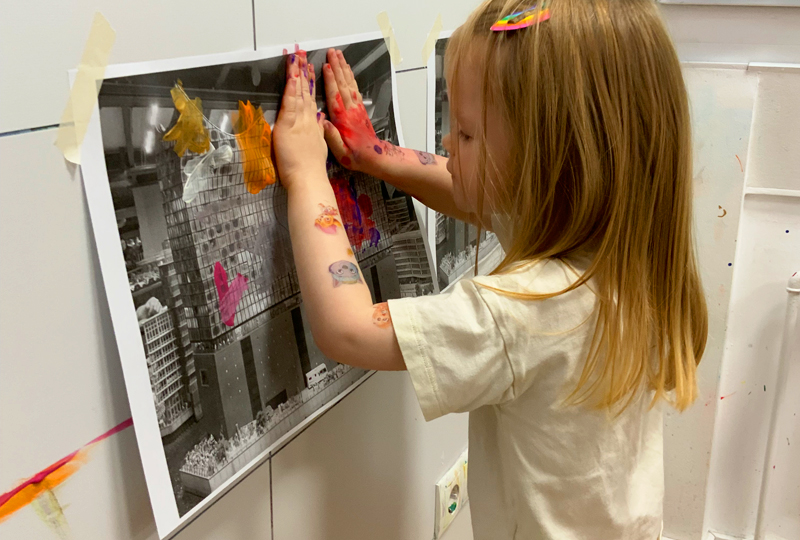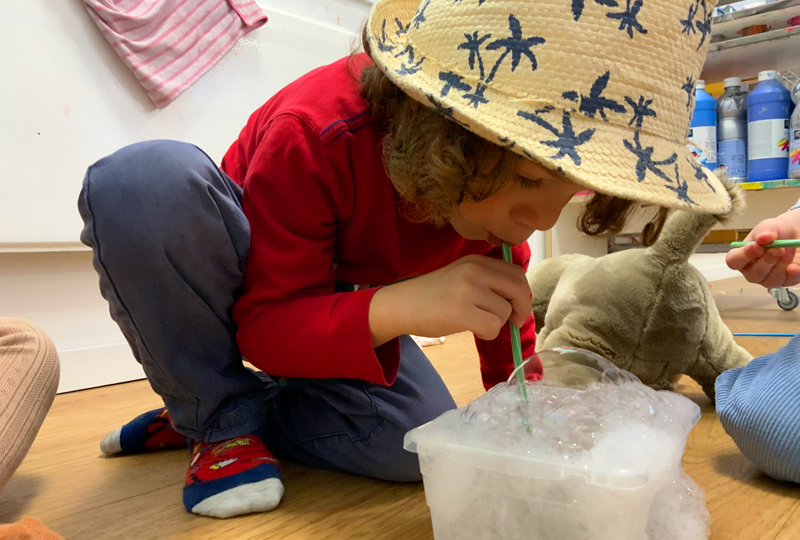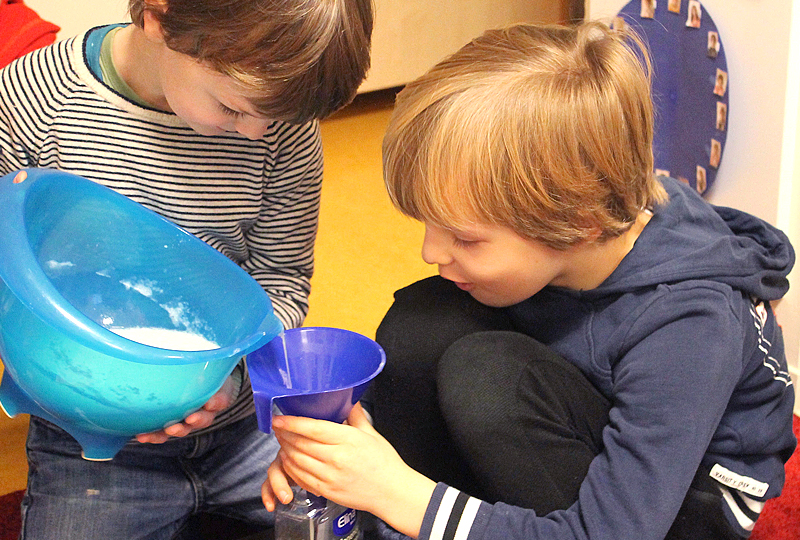Educational Concept
Creativity as the Foundation of Education
Creativity is the Key to Holistic Education
At the Lorenzini Art Daycare Centers, we firmly believe that creativity is the key to a holistic and sustainable education. Our philosophy is based on the conviction that artistic experiences significantly enhance the cognitive, emotional, and social development of children. Through creative processes, children learn to understand their world, develop problem-solving skills, and express their individual personalities.
Individual Support and Appreciation
Every child is unique. In our centers, we create an atmosphere of appreciation where every child feels accepted and understood. Our educators work closely with parents to foster a trusting and supportive environment in which children can develop optimally.


The 100 Languages of the Child
Loris Malaguzzi, founder of the Reggio Emilia approach, wrote in his poem “The Hundred Languages of the Child” that a child has 100 languages, 100 hands, 100 ways of thinking, speaking, and playing, 100 worlds to discover, and 100 worlds to dream.
Our goal is to preserve this diversity of languages, thoughts, approaches, and dreams, and to counteract the risk that a child’s inherent openness might be diminished by the often one-sided influences of society.
Reggio Emilia Approach
The Reggio Emilia approach is based on the belief that every child is capable of self-formation within a social context from the very beginning and interacts with their environment. Children are thus the architects of their own reality and development. The community acts as co-constructors, while the environment serves as the third
educator.
The spaces within the facility act as a rich environment that provides children with both stimulation and challenges, as well as comfort and opportunities for retreat.
In the studios, children are invited by a wealth of materials and colors to creatively construct their world.
Each child has a primary educator who serves as a point of contact, confidant, observer, guide, and surrogate parent during daycare hours. Children can hide behind them, ask questions, talk with them, learn rules together, go to meals with them, sing with them, and cuddle with them.
Educators are assigned to different functional areas of the facility as “hosts of the space.” They support the children, ensure the rules are followed, and observe and document development. They initiate regular projects and maintain the developmental records for all children.

Die hundert Sprachen des Kindes
Die Hundert gibt es doch
Das Kind besteht aus Hundert.
Hat hundert Sprachen
hundert Hände
hundert Gedanken
hundert Weisen
zu denken, zu spielen und zu sprechen
Hundert –
immer hundert Arten
zu hören, zu staunen und zu lieben.
Hundert heitere Arten
zu singen, zu begreifen
hundert Welten zu entdecken
hundert Welten frei zu erfinden
hundert Welten zu träumen.
Das Kind hat hundert Sprachen
und hundert und hundert und hundert.
Neunundneunzig davon aber
werden ihm gestohlen
weil Schule und Kultur
ihm den Kopf vom Körper trennen.
Sie sagen ihm:
Ohne Hände zu denken
ohne Kopf zu schaffen
zuzuhören und nicht zu sprechen.
Ohne Heiterkeit zu verstehen,
zu lieben und zu staunen
nur an Ostern und Weihnachten.
Sie sagen ihm:
Die Welt zu entdecken
die schon entdeckt ist.
Neunundneunzig von hundert
werden ihm gestohlen.
Sie sagen ihm:
Spiel und Arbeit
Wirklichkeit und Phantasie
Wissenschaft und Imagination
Himmel und Erde
Vernunft und Traum
seien Sachen, die nicht zusammen passen.
Sie sagen ihm kurz und bündig,
daß es keine Hundert gäbe.
Das Kind aber sagt: Und ob es die Hundert gibt.
Loris Malaguzzi

